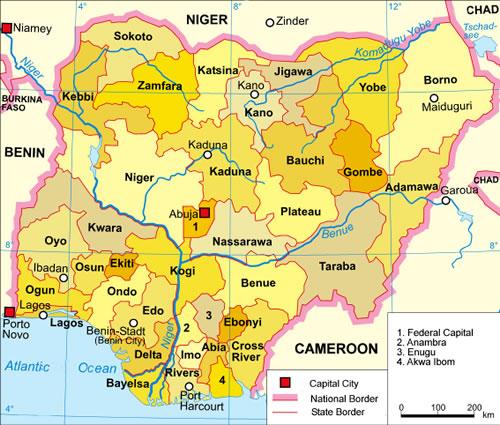Nigeria Advances Cross-Border Rail Infrastructure to Strengthen Food Security
In an era where regional integration is vital for overcoming food supply challenges, Nigeria has unveiled ambitious plans to invest heavily in cross-border railway networks. This initiative aims to enhance food security throughout West Africa by streamlining logistics and cutting transportation expenses. Amid rising global food costs and climate-related disruptions affecting agricultural output, Nigeria’s focus on expanding rail infrastructure represents a strategic move toward building a more resilient and sustainable food ecosystem. Beyond facilitating smoother transit of farm produce, this project is poised to deepen economic cooperation among neighboring nations, potentially revolutionizing how food products are distributed across the region.
Enhancing Agricultural Logistics through Rail Expansion in Nigeria
Nigeria’s commitment to upgrading its cross-border rail system signals a transformative approach to improving agricultural supply chains. By boosting connectivity between rural farming communities and urban markets—as well as international trade hubs—the government seeks to resolve persistent issues such as inefficient transport routes and lengthy delivery periods that have historically undermined regional food security. The expansion promises reduced delays, quicker transit times, and a strengthened logistical framework capable of supporting increased volumes of agricultural goods.
This enhanced rail network will not only lower freight costs but also empower farmers by granting them access to wider marketplaces. Key anticipated advantages include:
- Easier availability of both farming inputs like seeds and fertilizers, alongside improved distribution channels for harvested crops.
- Minimization of post-harvest spoilage due to faster transportation options.
- Creation of new employment opportunities, particularly within rural economies linked directly or indirectly with agriculture.
- An influx of investments into agribusiness ventures stimulated by better infrastructure.
The following table illustrates projected improvements in key logistical metrics after the rail upgrades:
| Metric | Status Before Upgrade | Status After Upgrade |
|---|---|---|
| Average Delivery Duration | 7 Days | 3 Days |
| Cargo Transport Cost per Ton (USD) | $150 | $80 |
| Mileage Reach for Market Access (km) | 150 km | 500 km+ |
Advantages of Investing in Regional Rail Networks for Food Security Enhancement
The development of cross-border railway systems offers substantial benefits that extend beyond mere transportation improvements—directly impacting the stability and accessibility of food supplies across West Africa:
- Lowers Transportation Expenses: Utilizing railways reduces bulk shipping costs compared with road transport, making staple foods more affordable at consumer levels.
- < strong >Expands Market Reach:< / strong > Farmers gain entry into larger urban centers as well as export markets, enabling surplus produce sales while meeting growing demand efficiently.< / li >
- < strong >Ensures Timely Deliveries:< / strong > Reliable train schedules help preserve freshness especially for perishable items like fruits, vegetables, dairy products reducing waste significantly.< / li >
- < strong >Stimulates Infrastructure Growth:< / strong > Investment triggers job creation along railway corridors—from construction phases through ongoing operations—boosting local economies tied closely with agriculture.< / li >
< / ul >Apart from these operational gains, stronger cross-border rail links foster deeper regional collaboration essential for addressing systemic issues related to hunger and malnutrition. Additional positive outcomes include:
- < strong >Promotion Of Sustainable Transport Methods:< / strong > Trains offer greener alternatives compared with trucks or air freight lowering carbon emissions associated with moving large quantities over long distances.< / li >
- < strong >Facilitation Of Joint Agricultural Programs:< / strong > Enhanced connectivity encourages shared initiatives such as technology transfer workshops or cooperative resource management benefiting farmers across borders.< / li >
- < strong >Harmonization Of Trade Policies:< / strong > Improved infrastructure often leads governments toward aligned regulations easing customs procedures which support smoother trade flows critical for consistent food availability. Learn more about policy impacts here. < / ul >
- Create centralized logistics hubs designed around efficient sorting & redistribution processes; li
- p >
Sustained collaboration between federal authorities, state governments bordering neighboring countries’ administrations plus private sector stakeholders remains crucial throughout implementation phases ensuring alignment between infrastructural capabilities & actual market demands within agriculture sectors regionally.
Public-private partnerships could accelerate funding inflows while fostering innovation adoption tailored locally — ultimately driving sustainable growth trajectories within Nigerian agribusiness ecosystems.< h2 id=“conclusion” Nigeria’s bold investment into cross-border railway infrastructure stands out as a pivotal development aimed at reinforcing regional food security frameworks comprehensively. By enabling faster movement coupled with cost-effective distribution channels, this project holds promise not only in uplifting local economies but also strengthening inter-country trade relations vital amid fluctuating global commodity prices. As these upgraded networks come online, they are expected fundamentally reshape how agricultural goods flow throughout West Africa, supporting broader ambitions centered on sustainable development goals alongside economic resilience enhancement. Stakeholders ranging from policymakers through farmers themselves eagerly anticipate measurable impacts once full-scale operations commence; success here could serve as an exemplary blueprint inspiring similar initiatives continent-wide — ushering an era marked by integrated transport solutions fueling inclusive growth across African nations.
Strategic Pathways To Maximize Nigerian Railway Potential For Food Supply Chains
A comprehensive strategy is necessary if Nigeria intends not only to expand its railway network but also optimize it effectively against the backdrop of national food security goals. Central components should include technological modernization efforts such as upgrading signaling systems along existing lines which improve safety standards while enhancing operational efficiency. Incorporating advanced data analytics tools can enable predictive maintenance schedules minimizing unexpected breakdowns that disrupt deliveries—ensuring consistent service quality tailored specifically towards agricultural cargo needs. p >
The establishment of targeted transport corridors linking major crop-producing regions directly with consumption centers will further streamline supply chains; recommended measures encompass:
- Create specialized freight lines dedicated exclusively for transporting perishables rapidly without delays caused by mixed cargo handling; li
